2020 Speakers
The following speakers appeared at Sight Tech Global on December 2–3, 2020.
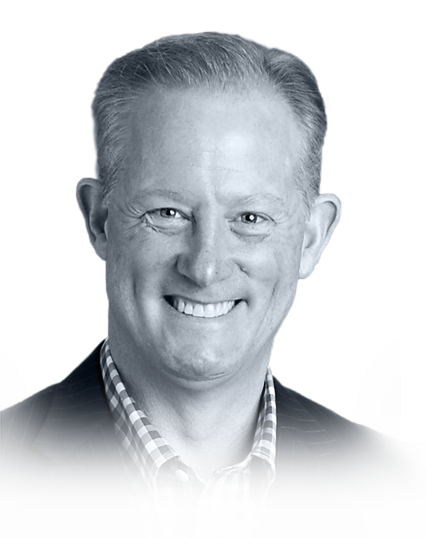
Marc Ashton

A successful entrepreneur and businessman, Marc Ashton’s life changed when his son Max was diagnosed with vision loss and began receiving services from the Foundation for Blind Children (FBC) in 1996. In 2007, after serving on the Foundation for Blind Children Board of Trustees, Marc sold his companies and became the CEO of Foundation for Blind Children. Marc knew he had to give every blind child in Arizona the same opportunities his son had. And he did.
Marc guided Foundation for Blind Children through the great recession and very tough financial times. He put his business acumen to work and paid off all FBC’s debt and increased student programming. Foundation for Blind Children grew rapidly under Marc’s leadership and in 2015, Marc raised $10,000,000 and built a new school, doubling the size of Foundation for Blind Children.
Today, FBC is nationally recognized as the leader in blind children education. FBC students have stood at the top of Mount Kilimanjaro, swam Alcatraz, hiked the Grand Canyon, paddled down the mighty Colorado and sailed the Spanish Virgin Islands. Families from across the country and all over the world move to Phoenix to get FBC services. Marc is now looking to the future with innovative social ventures in braille production and partnering with ASU to build the first undergraduate teacher of the visually impaired program west of the Mississippi.
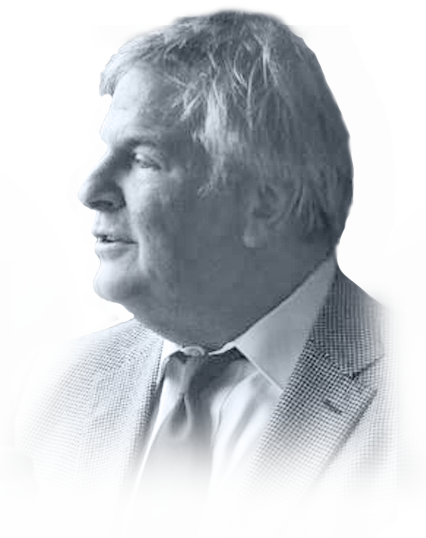
Bryan Bashin

Bryan Bashin reports to the Board of Directors and supervises the directors of Communications, Development, Operations, Programs and Enchanted Hills Camp and Retreat. Mr. Bashin has served in this position since 2010. Mr. Bashin’s extensive professional experience includes Executive Editor for the Center for Science and Reporting, Assistant Regional Commissioner for the United States Department of Education: Rehabilitation Services, and Executive Director of Society for the Blind in Sacramento. Mr. Bashin has been blind since college and from that time has dedicated a substantial part of his career to advocating for equality, access, training and mentorship for individuals who are blind or low vision. He serves or has served on numerous committees and organizations, including California Blind Advisory Committee, VisionServe Alliance, San Francisco State University’s Paul K. Longmore Institute on Disability, World Blind Union, National Industries for the Blind, and California Agencies for the Blind and Visually Impaired.
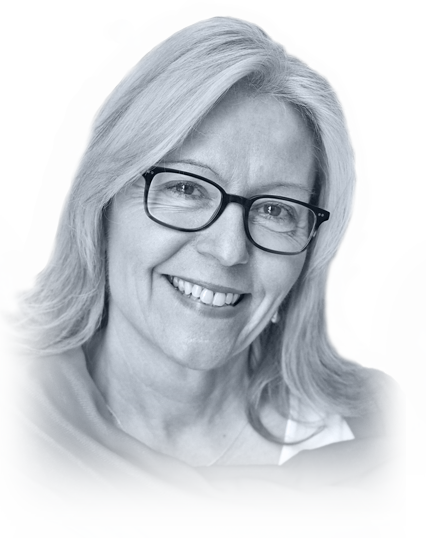
Betsy Beaumon

Betsy Beaumon is the CEO of Benetech, a nonprofit that empowers communities with software for social good in education, poverty alleviation, and human rights. Betsy has been advocating for ethical and inclusive technology for over a decade and is focused on innovating around the immense potential of technology to drive inclusion, equity, and justice to positively impact marginalized communities across the globe. She defined the concept of "Born Accessible," a vision where all digital content is made accessible to everyone when created. Betsy is a social entrepreneur and engineer and has co-founded two software companies, including the first web-based information and referral service for human services. She has developed products across software, semiconductor, and information sectors and held senior positions with BEA Systems and Cisco Systems. Betsy holds a degree in electrical engineering from Northwestern University.

Jeffrey Bigham

Jeffrey Bigham, research lead, AI/ML accessibility, leads a team of researchers and engineers at Apple focused on advancing accessibility through artificial intelligence and machine learning. He and his team support the design, engineering, and user experience for accessibility features across the entire Apple ecosystem.
Jeffrey has worked at the intersection of computer science, AI, and accessibility for more than 15 years. He is an associate professor at the School of Computer Science at Carnegie Mellon University, where he advises PhD students on a wide variety of projects in applied machine learning and teaches courses on technical approaches to accessibility and human-AI interaction. Jeffrey earned his PhD in computer science and engineering from the University of Washington and is a graduate of Princeton University.
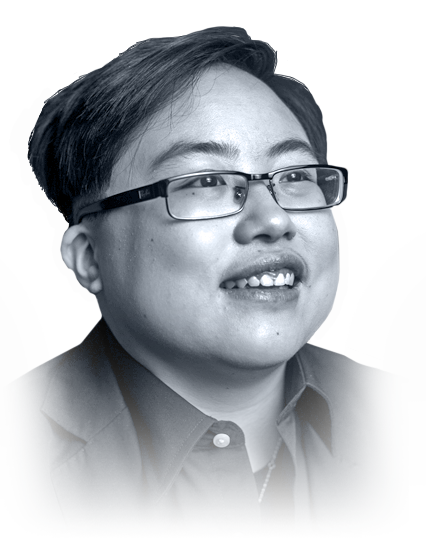
Lydia X. Z. Brown

Lydia X. Z. Brown is a Policy Counsel with CDT’s Privacy and Data Project, focused on disability rights and algorithmic fairness and justice. Outside of their work at CDT, Lydia is an adjunct lecturer in disability studies at Georgetown University’s Department of English, and the founding director of the Fund for Community Reparations for Autistic People of Color’s Interdependence, Survival, and Empowerment. They serve on the American Bar Association’s Commission on Disability Rights, and chair the Section on Civil Rights and Social Justice’s Disability Rights Committee. They are also lead editor of All the Weight of Our Dreams: On Living Racialized Autism, a groundbreaking anthology on autism and race published by the Autistic Women and Nonbinary Network. Lydia is Director of Policy, Advocacy, & External Affairs for the Autistic Women & Nonbinary Network, founding board member of the Alliance for Citizen-Directed Supports, and member of several advisory committees, including the Mozilla Foundation project on the Law and Politics of Digital Mental Health Technology, the Lurie Institute for Disability Policy at Brandeis University, and the Coelho Center for Disability Law, Policy, and Innovation at Loyola Law School.
Before joining CDT, Lydia worked on disability rights and algorithmic fairness at Georgetown Law’s Institute for Tech Law and Policy. Prior to that, Lydia was Justice Catalyst Fellow at the Bazelon Center for Mental Health Law, where they advocated for disabled students’ civil rights in schools, and an adjunct professor of disability policy and social movements at Tufts University. Lydia has spoken internationally and throughout the U.S. on a range of topics related to disability rights and disability justice, especially at the intersections of race, class, gender, and sexuality, and has published in numerous scholarly and community publications. Among others, they have received honors from the Obama White House, the Society for Disability Studies, the American Association of People with Disabilities, the National Disability Mentoring Coalition, and the Disability Policy Consortium. In 2015, Pacific Standard named Lydia to its list of Top 30 Thinkers in the Social Sciences Under 30, and Mic named Lydia to its inaugural list of 50 impactful leaders, cultural influencers, and breakthrough innovators for the next generation. In 2018, NBC named Lydia to its list of Asian Pacific American breakthrough leaders, and Amplifier featured them in the We The Future campaign honoring youth activism. Most recently, Gold House Foundation named Lydia to its A100 list of America’s most impactful Asians for 2020.
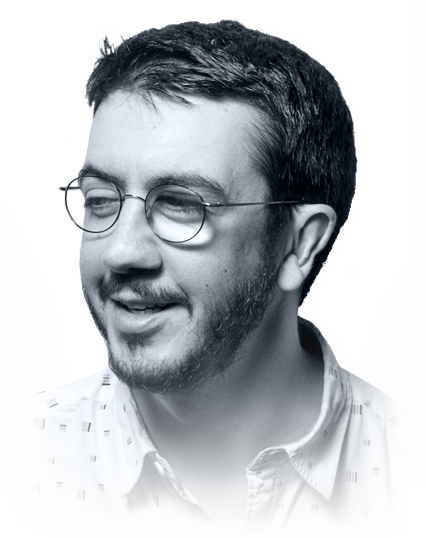
Will Butler

Will Butler is a writer, producer and podcast host from California. Legally blind since age 19, Will has written and produced numerous stories about adjusting to vision loss. His work has appeared in publications such as NPR, The Atlantic, The New York Times and Pop Up Magazine. Will joined Be My Eyes as its Vice President in 2019 after four years at Lighthouse for the Blind and Visually Impaired in San Francisco. You can listen to Will's interviews with leaders from the world of blindness and accessibility on The Be My Eyes Podcast and the 13 Letters podcast.
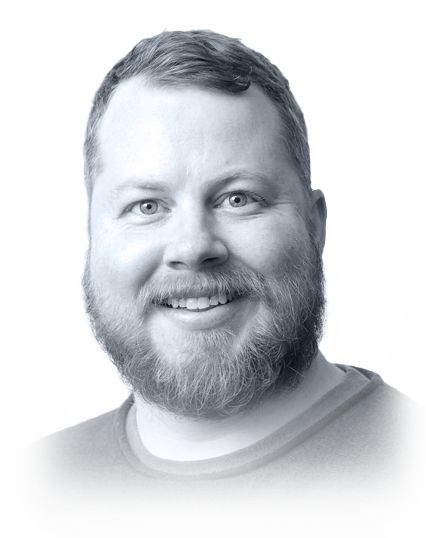
Patrick Clary

Patrick Clary leads product management for the Accessibility Engineering team in Google Research. His focus is on developing new technologies that benefit people with disabilities. Prior to Google, Patrick was a software engineer at Lockheed Martin working on NASA space exploration projects. Patrick earned bachelor's and master’s degrees in computer science from the University of Colorado at Boulder, and an MBA with a focus on new product development from Carnegie Mellon.
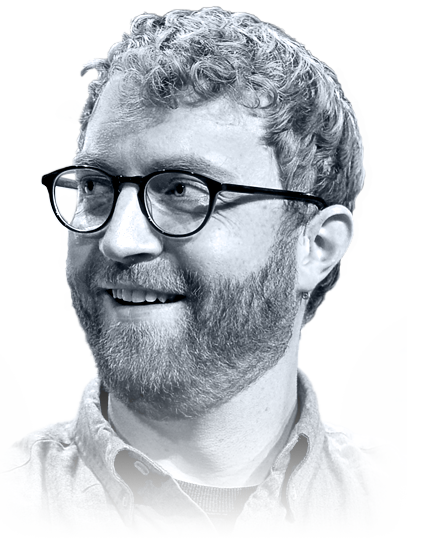
Devin Coldewey

Devin Coldewey is a Seattle-based writer and photographer. He first wrote for TechCrunch in 2007. He has also written for MSNBC.com, NBC News, DPReview, The Economist/GE's Look Ahead, and others.
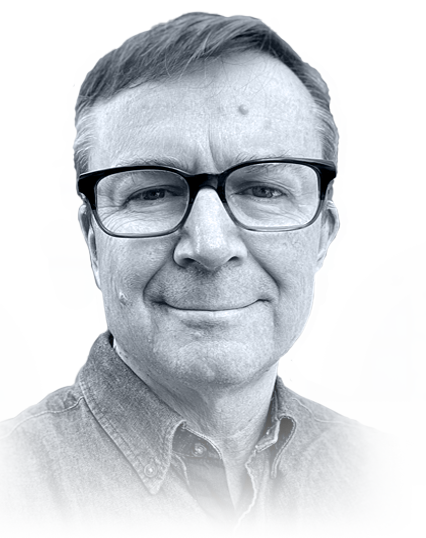
Ned Desmond

Ned Desmond is Sight Tech Global's founder and executive producer and was the chief operating officer at TechCrunch from 2012-2020. Prior to that Ned started two media brands was a Fortune senior correspondent and a Time magazine bureau chief, in New Delhi and Tokyo.
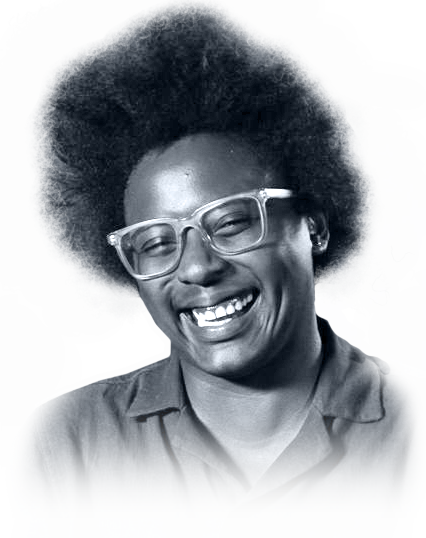
Megan Rose Dickey

Megan Rose Dickey is a senior reporter at TechCrunch focused on labor, diversity and inclusion, and transportation. She's also the author of Human Capital, a weekly newsletter that explores D&I and the human labor that powers the technology industry. Prior to joining TechCrunch, Megan covered tech startups at Business Insider. She has a degree in Broadcast and Digital Journalism from the University of Southern California.
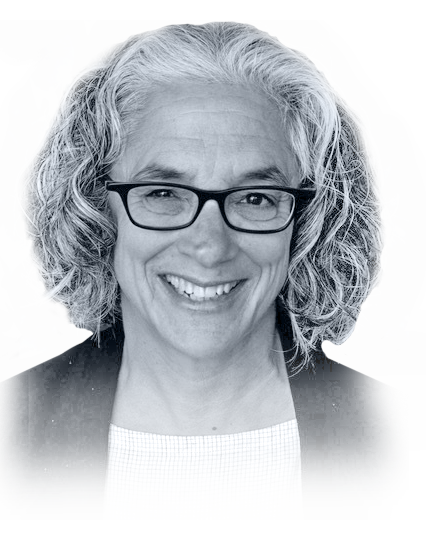
Lainey Feingold
Lainey Feingold is a disability rights lawyer, an author, and a public speaker and trainer. She has worked in the digital accessibility legal space since the mid-1990s and was on the team that negotiated the first web accessibility agreement in the United States, in 2000. Lainey's book about her work in digital accessibility is Structured Negotiation, A Winning Alternative to Lawsuits. It tells stories of how blind people and their lawyers use civil rights laws and collaboration to advance accessibility through relationship building and problem-solving instead of with conflict and expense.
Lainey does talks and training across the United States and around the world on collaboration, digital accessibility, and the civil rights of disabled people. She also serves as the accessibility subject matter expert for Disability:IN, the business disability global inclusion non-profit. Lainey has been named an American Bar Association (ABA) Legal Rebel, an ABA Problem Solver of the Year, and twice a California Lawyer of the Year. More on her website at http://LFLegal.com, and on Twitter at @LFLegal.

Andreas Forsland

Andreas is the Founder & CEO of Cognixion, a digital health startup based in Santa Barbara, California and Toronto, Ontario. Cognixion builds accessible and affordable neuroprosthetic software and wearables that use biometric sensors and ML in new ways to help people with complex disabilities use their face, eyes and brain as a direct control interface for mobile and AR accessibility. Cognixion is recognized as a top 21 neurotech startups to watch, and is focused on scaling up the transformation of over 100 million lives and translating universal design approaches for everyone by focusing on the most challenging human interaction needs.
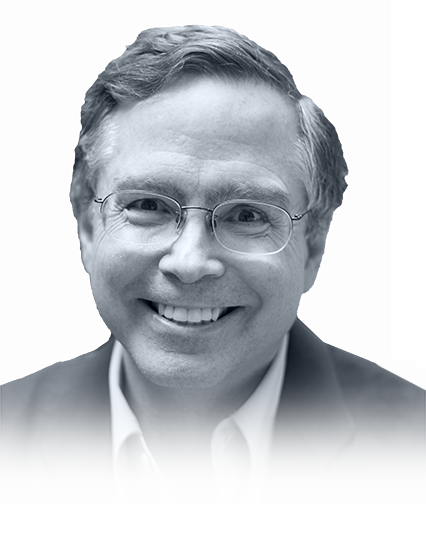
Jim Fruchterman

Jim Fruchterman is a serial tech and social entrepreneur, who has already proven how technology can change entire fields in the social sector. He was the founder and CEO of Benetech for nearly 30 years, delivering large-scale change in partnership with hundreds of organizations as part of social enterprises addressing education, disability, human rights, and the environment. In addition, he has advised hundreds of diverse social enterprises on the use of technology and data. He previously founded two successful for-profit Silicon Valley tech companies in the machine learning/artificial intelligence field, and is an active angel investor in and board member for several companies. Fruchterman has been widely recognized for his social change work, including being selected as a recipient of the MacArthur Fellowship, the Skoll Award for Social Entrepreneurship, the Schwab Social Entrepreneur Award, and the Caltech Distinguished Alumni award.
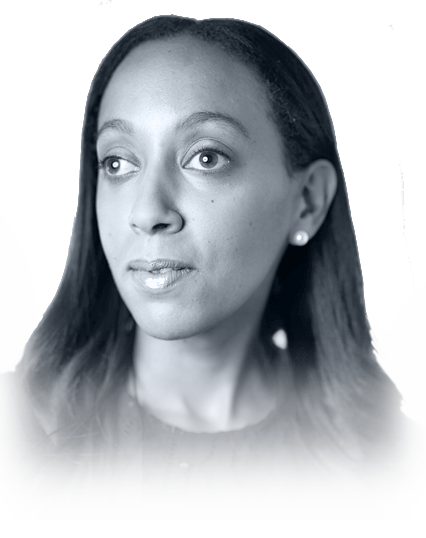
Haben Girma
The first Deafblind person to graduate from Harvard Law School, Haben Girma is a human rights lawyer advancing disability justice. President Obama named her a White House Champion of Change. She received the Helen Keller Achievement Award, a spot on the Forbes 30 Under 30 list, and TIME100 Talks. President Bill Clinton, Prime Minister Justin Trudeau, and Chancellor Angela Merkel have all honored Haben. Haben believes disability is an opportunity for innovation, and she teaches organizations the importance of choosing inclusion. The New York Times, Oprah Magazine, and TODAY Show featured her memoir, Haben: The Deafblind Woman Who Conquered Harvard Law.
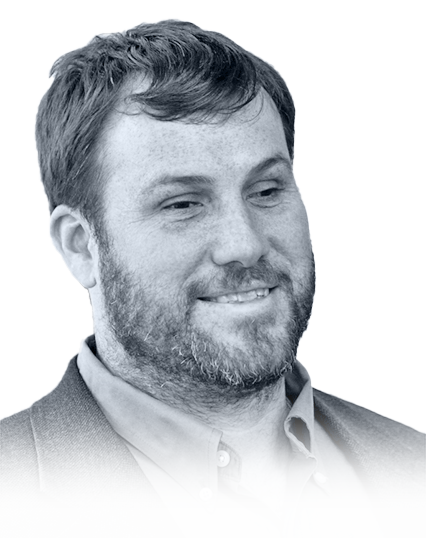
Dr. Nicholas Giudice

Dr. Nicholas Giudice received his Ph.D. in the Cognitive and Brain Sciences program in the Department of Psychology from the University of Minnesota in 2004 and worked as a postdoctoral research fellow in the Psychological and Brain Sciences program in the Psychology Department at the University of California, Santa Barbara from 2005-2008. He joined the University of Maine in Fall of 2008 and is currently a Professor of Spatial Informatics in the School of Computing and Information Science, with a joint appointment in the Department of Psychology. He is the founding Director of the Virtual Environments and Multimodal Interaction (VEMI) Laboratory (https://umaine.edu/vemi/). VEMI houses Maine’s only research facility combining a fully immersive virtual reality (VR) installation with augmented reality (AR) technologies in an integrated research and development student-driven environment. Research in his Lab uses a combination of behavioral experiments and usability studies to investigate human spatial cognition with and without vision, to determine the optimal information requirements for the design of multimodal interfaces, and as a testbed for evaluation and usability research for navigational and information access technologies for blind and low-vision users, older adults experiencing vision loss, and sighted individuals who are ‘situationally blind’ (e.g., texting while walking). Dr. Giudice is himself congenitally blind and has a long history of both designing and using assistive technology for navigation. He has authored or co-authored over 170 scientific publications relating to the study and design of multimodal access technology for blind and visually impaired people, collaborated on over $12 million in research grants in this field from NIH, NSF, and NIDILRR, and has advised over 80 students. Dr. Giudice has also been on the program committees (often as Chair / co-chair) of dozens of scientific conferences / workshops, is on the scientific advisory boards of two information-access companies (Aira Corp and Click and Go Wayfinding maps LLC), is a current board member on two blindness-related organizations (American Council of the Blind (ACB) of Maine and the Iris Network), and is the founder/co-founder of two start-up companies dealing with information-access technologies (Unizign Research, LLC and Unar Labs, LLC).
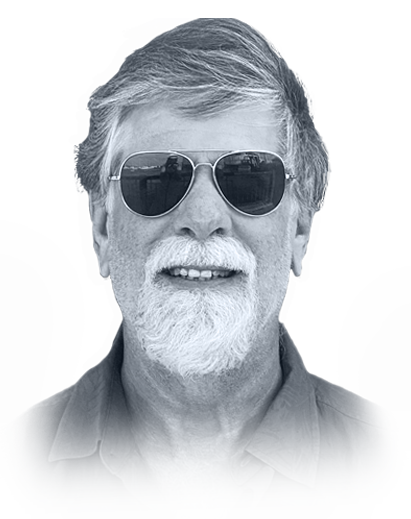
Larry Goldberg

Larry is Head of Accessibility at Verizon Media where he directs a dedicated team of accessibility professionals and coordinates with thousands of designers and developers to ensure that Verizon Media's many products, services and media offerings are as accessible as possible for people with disabilities. Verizon Media’s brands include Yahoo Finance, News, Sports and Lifestyle; Huff Post, Engadget, Tech Crunch, Makers, AOL, and many others and are designed and developed to conform to the W3C’s Web Content Accessibility Guidelines. Verizon Media also supports major industry-wide efforts to raise the level of accessible technology awareness and understanding, as well as depiction of people with disabilities in the media, through projects such as The Disability Collection, Teach Access and XR Access. Larry previously worked at WGBH Boston, where he founded and directed its National Center for Accessible Media (NCAM) and where he was directly involved in such ground-breaking legislation as the TV Decoder Circuitry Act, The Telecommunications Act of 1996 and the 21st Century Communications and Video.
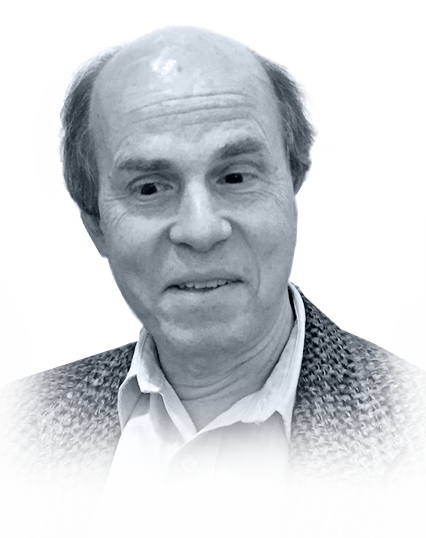
Glen Gordon

Glen Gordon was the original architect of the JAWS screen reader and has spent over 25 years working to ensure that blind people running Windows can quickly and efficiently use applications to perform a diverse array of tasks. Blind since birth, his interest in accessibility developed out of a selfish desire to use Windows at a time when it was not at all clear that graphical user interfaces could be made accessible. He has an MBA from the UCLA Anderson School, a software development degree from the school of hard knocks and lots of frustration trying to use inaccessible software. It’s that personal frustration that continues to motivate his efforts to make things better both for himself and others.
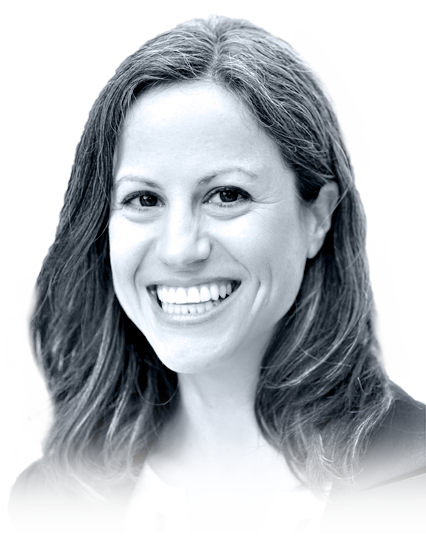
Danna Gurari

Danna Gurari is an Assistant Professor as well as Director of the Image and Video Computing group in the School of Information at University of Texas at Austin (UT-Austin). Her research interests span computer vision, machine learning, human computation, crowdsourcing, human computer interaction, accessibility, and (bio)medical image analysis. Her group focuses on creating computing systems that enable and accelerate the analysis of visual information. She and her work has been recognized with the 2017 Honorable Mention Award at CHI, Researcher Excellence Award from the Boston University Computer Science Department in 2015, 2014 Best Paper Award for Innovative Idea at MICCAI IMIC, and 2013 Best Paper Award at WACV. Gurari's research has been supported by the National Science Foundation, Silicon Valley Community Foundation's Chan Zuckerberg Initiative, Microsoft, Adobe, and Amazon. She received her Ph.D. from Boston University's Computer Science Department, then served as a postdoctoral fellow in UT-Austin's Computer Science Department. Before that, she held industry positions at two leading technology companies: Boulder Imaging and Raytheon.
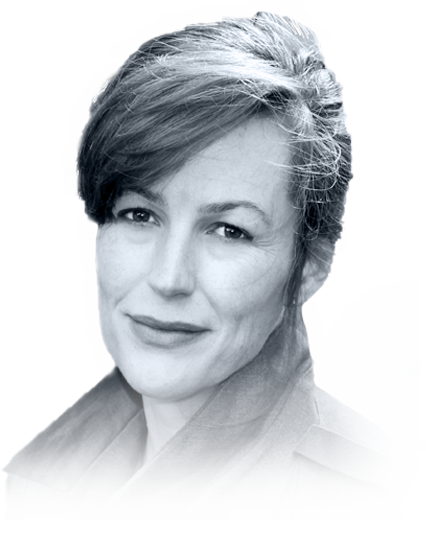
Sara Hendren

Sara Hendren is an artist, design researcher, and writer who teaches design for disability at Olin College of Engineering. Her book, What Can A Body Do? How We Meet the Built World, comes out on August 18—a look at the deep creativity and urgency found where disability meets design, with wisdom and ideas for building a better world for all of us. Sara's work has been exhibited widely and is held in the permanent collections at MoMA and the Cooper Hewitt; her writing and design work have been featured in The New York Times, Fast Company, and on NPR; and she has been a fellow at New America and the Carey Institute for Global Good. She lives in Cambridge, Massachusetts with her husband and children.
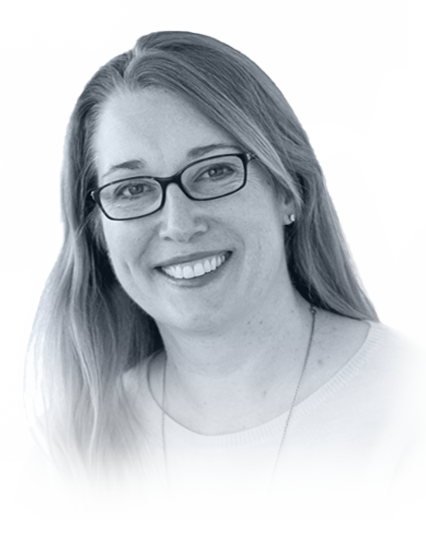
Sarah Herrlinger

Sarah Herrlinger is Apple’s senior director of Global Accessibility Policy & Initiatives. Sarah leads accessibility programs for Apple — including support for disability communities worldwide, the accessibility technologies built into all Apple hardware, software, and services, as well as other initiatives that promote Apple’s culture of inclusion. At Apple, Accessibility is championed as a basic human right and influences all Apple platforms and every customer experience. Since joining Apple in 2003, Sarah has served in several key accessibility roles, including in Apple’s Education organization, focusing on the use of Apple technology to support all learners, as well as defining the accessibility product strategy across the Apple ecosystem.
Sarah holds a Bachelor of Arts degree from DePauw University and a Master of Business Administration from the Stanford Graduate School of Business. She serves on the board of directors for the American Foundation for the Blind.
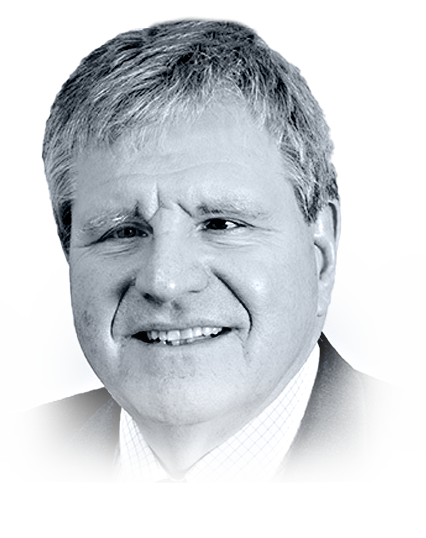
George Kerscher

George Kerscher is the Chief Innovations Officer for the DAISY Consortium, serves as a Senior Advisor for Benetech’s Global Education and Literacy Group, and is the President of the International Digital Publishing Forum (IDPF). An internationally recognized leader in document access, he has been devoted to making published information fully accessible to persons with print disabilities since 1987. He coined the term "print disabled" to describe people who cannot effectively read print because of a visual, physical, perceptual, developmental, cognitive, or learning disability. A tireless advocate, George believes that access to information is a fundamental human right and properly designed information systems can make all information accessible to all people.
He is the Director Emeritus at Guide Dogs for the Blind and in 2012 was honored at the White House as a Champion of Change for leading innovation in the fields of science, technology, engineering, and math for people with disabilities.
George and his guide dog Kroner graduated from Guide Dogs for the Blind in July, 2015.
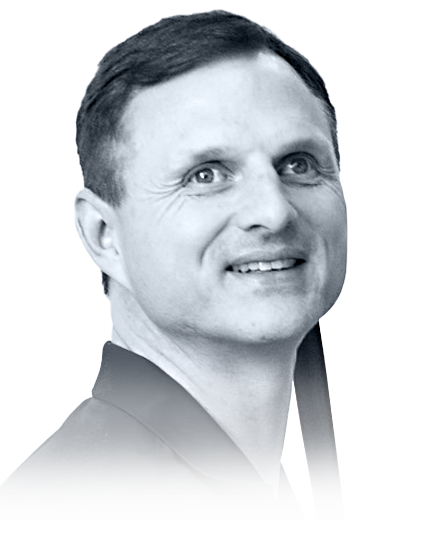
Matt King

Matt is a Technical Program Manager for Facebook Accessibility where he leads work to provide people with disabilities the same power to connect and build community enjoyed by others. In addition to shaping Facebook product accessibility, he drives industry-wide efforts to elevate the global accessibility ecosystem via open standards as chair of multiple World Wide Web Consortium projects.
Matt has been immersed in accessibility technology and advocacy since his days studying electrical engineering and music at the University of Notre Dame when progression of his retinitis pigmentosa forced him to embrace the white cane, braille, and screen readers as essential. In 1989 he began his career at IBM as an electrical engineer. After moving into software engineering, he stumbled into an opportunity to use his engineering skills to advance accessibility. Breaking down barriers to accessibility and inclusion has since been both his profession and mission. While focused on pushing technological boundaries, he also strives to help redefine cultural expectations of people with disabilities. His mantra while competing in tandem cycling at three Paralympic games was “Blindness disables eyes, not life.”
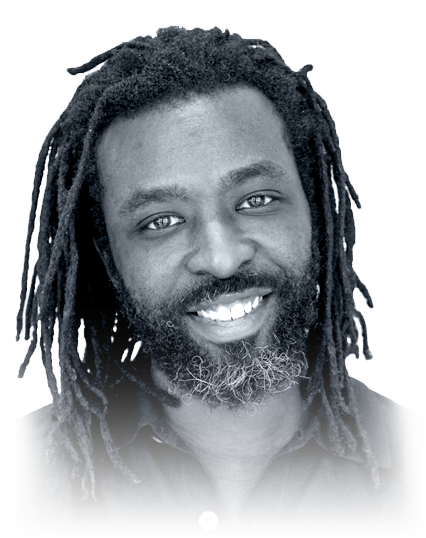
Keith Kirkland

Keith Kirkland is Cofounder of WearWorks and the Head of Haptics and Customers. He has worked with organizations ranging from the MET Museum, The Cooper Hewitt Design Museum, The DAHRC, Unilever, Futureworks, Discovery Channel, TED, Dropbox, The Yokohama Government, Coach and the National Science Foundation. He is an engineer, designer and strategist that is deeply excited about reimagining the future of touch through design while expanding humans ability to sense their environment.
WearWorks is a haptic design company that builds products and experiences that communicate information through touch. Their first product, Wayband™, is a wrist-wearable haptic navigation device for the blind and visually impaired. And, in 2017, it was used to help the first person who is blind run in the NYC marathon without sighted assistance. The Wayband™ is currently available on preorder for $179 and will ship by June 2021.
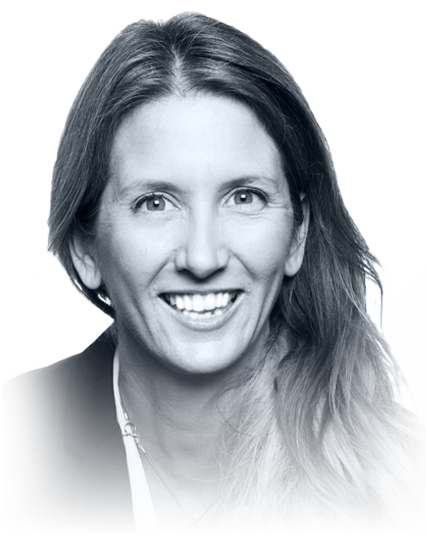
Kirsten Korosec

Kirsten Korosec, a reporter and editor at TechCrunch, has focused on the intersection of business, technology and transportation for nearly a decade. She also co-hosts the Autoncast, a podcast about the future of transportation. She has previously written for Fortune, The Verge, CBS Interactive. Bloomberg and MIT's Technology Review.
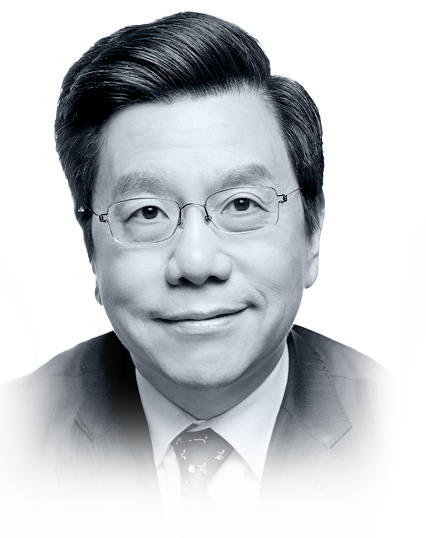
Kai-Fu Lee

Kai-Fu Lee is the Chairman and CEO of Sinovation Ventures and President of Sinovation Ventures Artificial Intelligence Institute. Sinovation Ventures, managing US$2 billion dual currency investment funds, is a leading venture capital firm focusing on developing the next generation of Chinese high-tech companies.
Prior to founding Sinovation in 2009, Dr. Lee was the President of Google China, and senior executive at Microsoft, SGI, and Apple. Dr. Lee received his Bachelor degree in Computer Science from Columbia University, Ph.D. from Carnegie Mellon University, as well as Honorary Doctorate Degrees from both Carnegie Mellon and the City University of Hong Kong. He is the Co-Chair of the Artificial Intelligence Council for the World Economic Forum’s Center for the Fourth Industrial Revolution, Fellow of the Institute of Electrical and Electronics Engineers (IEEE), TIME 100 (The Most Influential People of 2013), WIRED 25 Icons, Asia House’s Asian Business Leader 2018, and followed by an audience of over 50 million on social media.
In the field of artificial intelligence, Dr. Lee built one of the first game playing programs to defeat a world champion (1988, Othello), as well as the world’s first large-vocabulary, speaker-independent continuous speech recognition system. Dr. Lee founded Microsoft Research China, which was named as the hottest research lab by MIT Technology Review. Later renamed Microsoft Research Asia, this institute trained the great majority of AI leaders in China, including CTOs or AI heads at Baidu, Tencent, Alibaba, Lenovo, Huawei, and Haier. While with Apple, Dr. Lee led AI projects in speech and natural language, which have been featured on Good Morning America on ABC Television and the front page of Wall Street Journal. He has authored 10 U.S. patents, and more than 100 journal and conference papers. Altogether, Dr. Lee has been in artificial intelligence research, development, and investment for more than 30 years. His New York Times and Wall Street Journal bestselling book AI Superpowers (aisuperpowers.com) discusses US-China co-leadership in the age of AI as well as the greater societal impacts brought upon by the AI technology revolution.
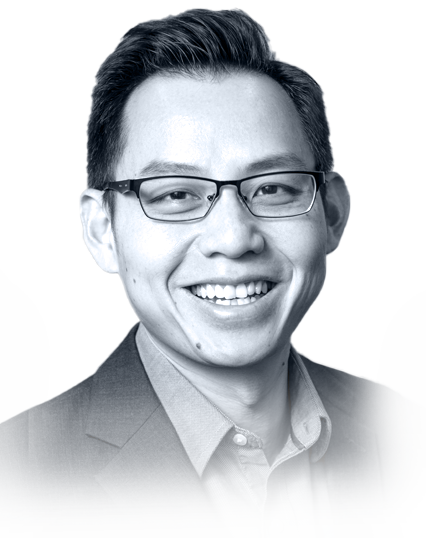
Charles Lim

Charles Lim is a global technology expert with 20 years of experience and a proven record of scaling businesses. Joining eSight in 2018, Charles has led eSight's transition from a breakthrough enhanced vision product to an agile, mobile, cloud computing medical device company powered by an AI back end. Previously, Charles worked in progressive global senior leadership positions with IMAX where he led strategy, operations and business development during a key moment in the company’s rapid growth stage. He’s also acted as a consultant with MaRS Discovery District where he worked closely with technology startups to ensure their success and was a key player in building the MaRS technology innovation ecosystem. Charles has successfully led engineering teams developing leading edge fiber optic broadcast systems, consumer electronics and aerospace technologies that earned him multiple awards including the NASA Goddard Space Flight Center Award of Excellence.
Charles holds a Bachelor of Electrical Engineering and Master of Electrical and Computer Engineering from Ryerson University, and an MBA from Rotman School of Management at the University of Toronto. He has also completed executive level courses at Harvard Business School.
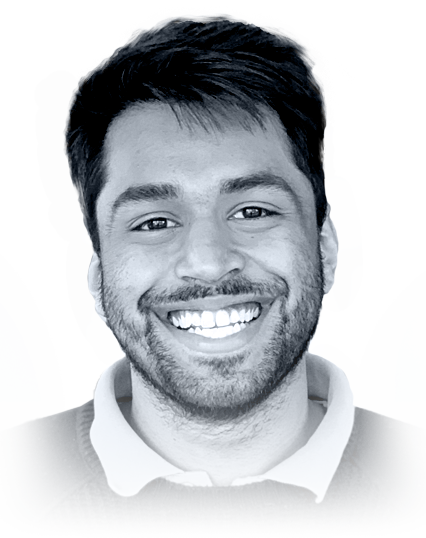
Karthik Mahadevan

Karthik Mahadevan is the co-founder of Envision, a software tool that speaks out the visual world for the blind and visually impaired. The idea that started as a student project of his, went on to become a much-loved app by the users. It also won the Google Play Award for the Best Accessibility Experience last year.
Envision has now brought its powerful software to smartglasses, in partnership with the Google Glass. This unlocks a whole new way for people to access all kinds of visual information around them, in a completely unobtrusive manner. Envision plans to scale this smartglasses solution as a platform for a whole range of camera and AI-based solutions for the blind and visually impaired.
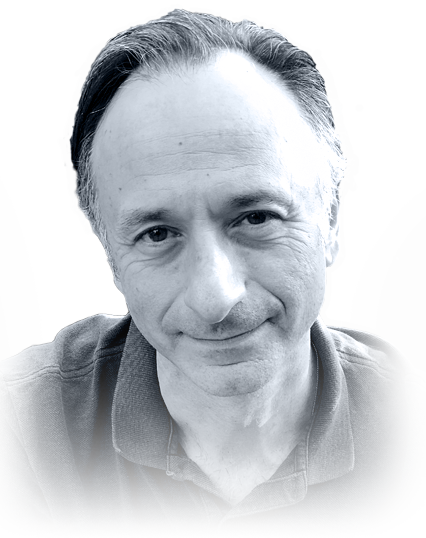
Roberto Manduchi

Roberto Manduchi is a Professor of Computer Science and Engineering at the University of California, Santa Cruz, which he joined in 2001 before stints at Apple and at the Jet Propulsion Laboratory. His group conducts research Access Technology for people with blindness and computer vision, with support from the National Science Foundation, the National Institutes of Health, and Research to Prevent Blindness. He is currently serving in the Board of Directors of the Vista Center for the Blind and the Visually Impaired.
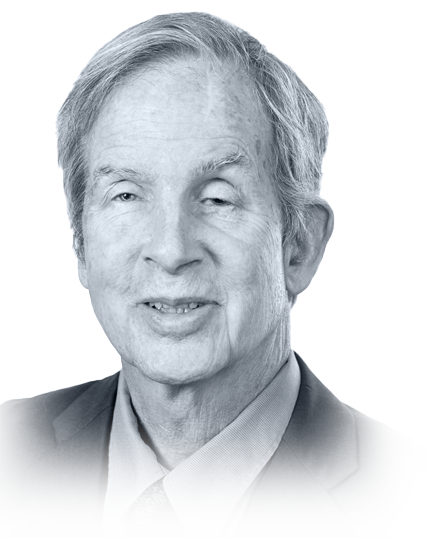
Mike May

Mike May has been an innovator of many technologies including navigation systems that improve the independence of people who are blind. In 1999, he founded Sendero Group, developers of the first accessible GPS and talking map software. Mike has been the Principal Investigator on five federally funded grants for the research and development of accessible wayfinding technology for individuals with disabilities. Now he is continuing to work on that passion with GoodMaps to develop a seamless outdoor to indoor navigation solution - and to finally solve the "final frustrating fifty feet" problem.
Mike was totally blinded at age three from an explosion of calcium carbide. He grew up believing he was lucky to be blind and still alive. Mike has a profound sense of adventure. Mike has met Presidents Carter, Reagan, Clinton and Obama. A story of Mike's adventures is told in Robert Kurson's best-selling book, Crashing Through. His mottos are "there is always a way" and "it's better to travel hopefully than to arrive."
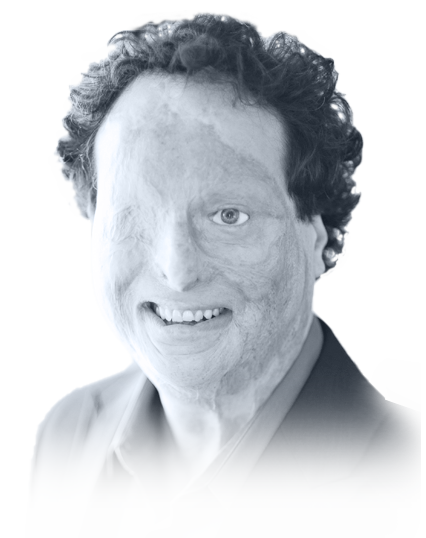
Josh Miele

Josh Miele is a blind scientist, community leader, and inventor with a history of developing innovative information-accessibility solutions for blind people. At Amazon’s Lab126, Dr. Miele is a Principal Accessibility Researcher, where he guides the non-visual customer experience for device accessibility, and advises widely across Amazon on inclusive design and research methods. His work integrates universal design, accessibility engineering, disability studies, and other disciplines, applying emerging technologies and trends to a wide range of information accessibility challenges.
For over 20 years, Dr. Miele worked at the Smith-Kettlewell Rehabilitation Engineering Research Center on Blindness and Low Vision, leading a team of engineers and scientists dedicated to addressing a wide variety of accessible information challenges in education, employment, and entertainment. His contributions while at Smith-Kettlewell included TMAP, overTHERE, Wearabraille, YouDescribe, and the Blind Arduino Project. Miele is an active member of the San Francisco Bay Area’s vibrant disability community. He is the former President of the Board of Directors of the San Francisco LightHouse for the Blind and Visually Impaired, where he cofounded LightHouse Labs—a Bay Area think tank committed to tightening ties between technology innovators and the blind community. He has also served on the boards of the Ed Roberts Campus (ERC) and the Bay Area Outreach and Recreation Program (BORP).
Miele holds a bachelor’s degree in physics and a Ph.D. in psychoacoustics from the University of California at Berkeley. He works in San Francisco and lives in Berkeley with his wife and two children.
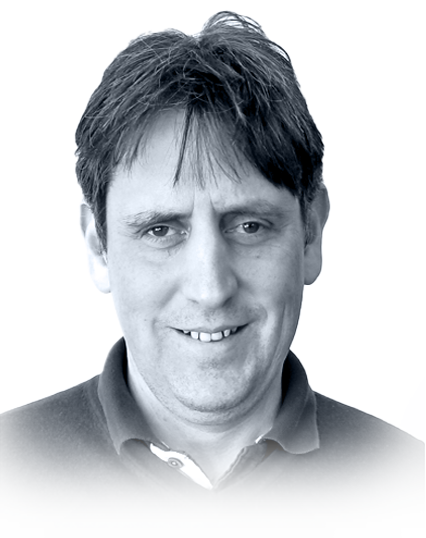
Amos Miller

Amos Miller is a Product Strategist at Microsoft AI and Research where he drives a program that seeks to understand and invent accessibility in the world where artificial intelligent agents and mixed reality are primary forms of interaction. As the co-founder of Microsoft Soundscape, Amos has demonstrated how the value of working with design constraints in support of mobility and independence for the blind and low vision community has resulted not only in the paradigm shifting product that is Soundscape, but how those very same innovations in audio now open up new experiences and possibilities for everyone.
Amos has a B.Sc. in Computer Science and an MBA from London Business School and enjoys a rewarding career seeking to harness the power of technology to change the world for the better.
Previously, as the director for Microsoft’s Digital Advisory Service in the UK and later in Asia pacific and Japan, he led a program that helped Microsoft enterprise customers accelerate towards their business goals by helping them innovate and drive business value from advancements in technology.
Amos has served as president of Guide Dogs Singapore and chairman of the board for Guide Dogs for the Blind in the UK where he aligned Guide Dogs to become a multi-service, user centric charity.
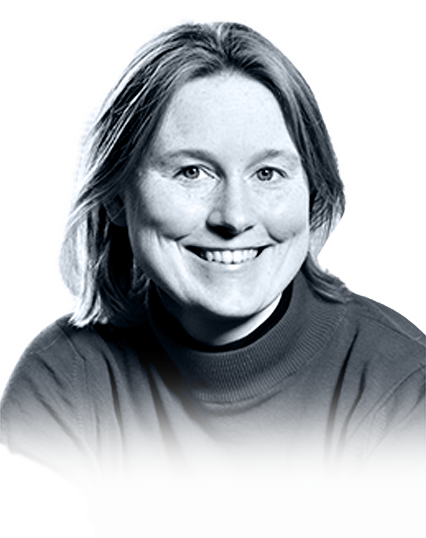
Cecily Morrison

Cecily Morrison is a Principal Researcher in the Human Experience & Design community at Microsoft Research Cambridge. Her research lies at the intersection of Human-Computer Interaction and Artificial Intelligence. She is currently leading a team focused on creating the next generation of visual agents for people who are blind and low vision. Morrison is exploring the interaction paradigms between people and agents that can be brought to bear to extend human capability through subtle dialogues with agents that see.
In this podcast, Dr. Morrison gives us an overview of what she calls the “pillars” of inclusive design, shares how her research is positively impacting people with health issues and disabilities, and tells us how having a child born with blindness put her in touch with a community of people she would otherwise never have met, and on the path to developing Project Torino, an inclusive physical programming language for children with visual impairments.
Morrison holds a PhD in Computer Science from University of Cambridge and an undergraduate degree in Ethnomusicology from Barnard College, Columbia University. She shares life with her partner and two children, one of whom is blind.
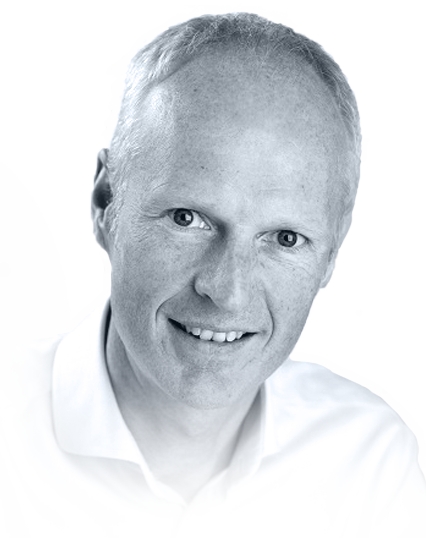
Tim Murdoch

Tim Murdoch is co-founder of Waymap, an award-wining start-up that delivers the best in class wayfinding for visually impaired and other communities. Our breakthrough technology delivers highly accurate location and heading on smartphones and without the need for beacon infrastructure, both indoors and outside. Our vision is to deliver the benefits of Smart Cities, IoT and Machine Learning to those who might benefit from it most, starting with indoor navigation and tracking.
Tim is one of the original creators of the M-PESA money transfer service for Vodafone, a financial service that has transformed the lives of many millions of people across Africa and beyond and become the poster child for the financial services industry. Tim is an Industrial Research Fellow at Cambridge University Engineering Design Centre and Fellow of Cambridge Digital Innovation at the Judge Business School.
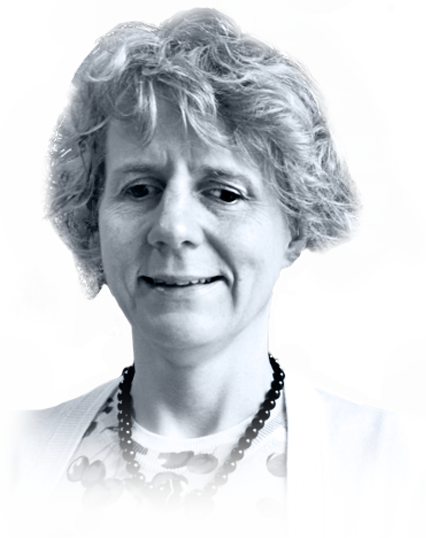
Sile O'Modhrain

Sile O'Modhrain is an associate professor at the University of Michigan where she holds a joint appointment in the Performing Arts Technology (PAT) program in the School of Music, Theatre and Dance, and in the school of information. Her research focuses on human-computer interaction, especially interfaces incorporating haptic and auditory feedback. She earned her master's degree in music technology from the University of York and her PhD from Stanford University's Center for Computer Research in Music and Acoustics (CCRMA). She has also worked as a sound engineer and producer for BBC Network Radio. In 1994, she received a Fulbright scholarship, and went to Stanford to develop a prototype haptic interface augmenting graphical user interfaces for blind computer users. For the past eight years, she has been working with Brent Gillespie and Alex Russamanno to design and build a full-page tactile array to support the display of braille and tactile graphics.
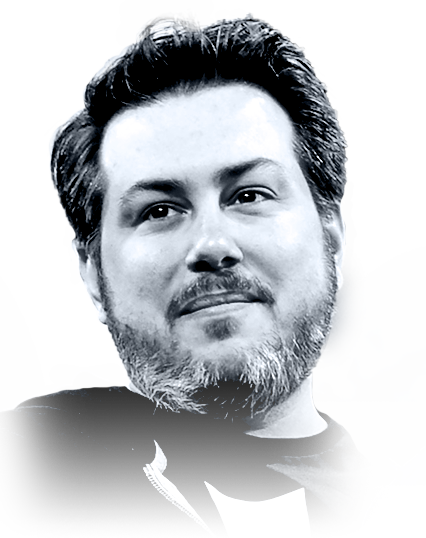
Matthew Panzarino

Matthew Panzarino has been a retail jockey, and he founded a professional photography business, as well as a news blog covering the Apple ecosystem. He has served as News Editor and Managing Editor at The Next Web and is now Editor-In-Chief at TechCrunch. He has made a name for himself in the tech media world as a writer and editor, relentlessly covering Apple and Twitter, in addition to a broad range of startups in the fields of robotics, computer vision, AI, fashion, VR, AR and more. Owns shares in ETFs. Contact Matthew at matthew@techcrunch.com PGP Key: https://keybase.io/panzer.
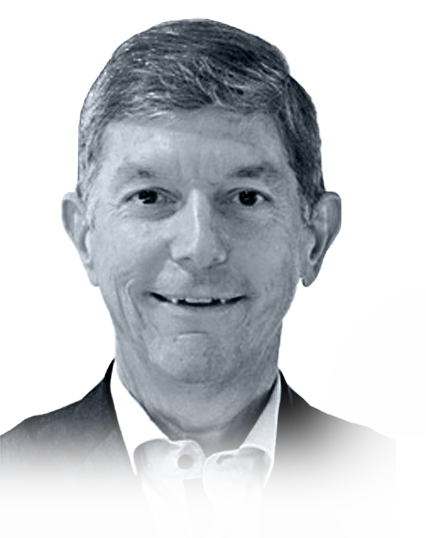
Gilles Pepin

Gilles Pepin is the founder & CEO of HumanWare, a global leader which provides innovative solutions to empower visually impaired people to develop their full potential and fully participate in society.
Over the past 32 years, Mr. Pepin has built HumanWare into a world class company in the field of technology for the visually impaired world. With its headquarters in Canada and offices in Florida, England and Australia, HumanWare has served more than one million customers. HumanWare is recognized as the most innovative company in this field, with more than 50 high technology products to its credit. Today, HumanWare still offers a wide range of products in over 25 different languages and distributes its products in more than 50 countries around the world.
In 2013, HumanWare joined the Essilor group, the world leader in the manufacturing of ophthalmic lenses. After a merger, the Essilor-Luxottica Group has 150,000 employees and generates annual sales of over 17 billion €.
Before founding HumanWare, Mr. Pepin worked as a consultant in a Montreal telecommunications engineering firm where he carried out major projects in IT, telephony and other telecommunications sectors. He then joined the Institut Nazareth et Louis-Braille where he got his start in the field of technology associated with visual impairment.
Mr. Pepin holds a master's degree in digital speech signal processing from the University of Sherbrooke, a Diploma in Advanced Studies (DEA) from the University of Rennes in France and an advanced certificate in accounting of management from McGill University in Montreal. He also completed his engineering degree at the University of Sherbrooke in 1982. In addition, he did research in speech coding at the CNET laboratory in France.
Mr. Pepin is a member of the Order of Engineers of Quebec. In 2008, he was appointed Ambassador of the University of Sherbrooke. He was Chairman of the Board of Directors of the Association Québécoise des Technologies (AQT) and of the Fondation du Collège St-Bernard, as well as a member of the Board of Directors of the "Essilor Vision Foundation".
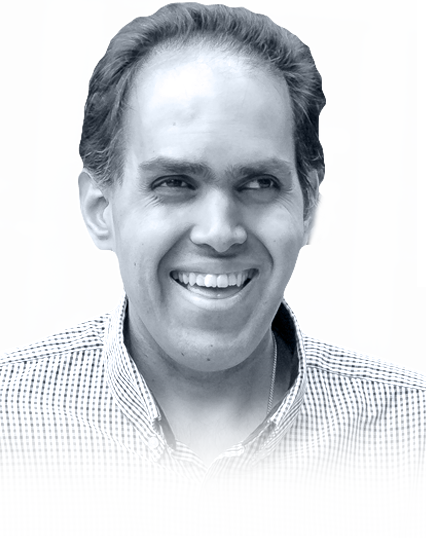
Saqib Shaikh

At Microsoft, Saqib Shaikh leads teams of engineers to blend emerging technologies with natural user experiences to empower people with disabilities to achieve more - and thus to create a more inclusive world for all.
His latest project, Seeing AI, enables someone who is visually impaired to hold up their phone, and hear more about the text, people, and objects in their surroundings. It has won multiple awards, and been called "life changing" by users. Shaikh has demonstrated his work to the UK Prime Minister, and to the House of Lords. The video of the original prototype has been viewed over three million times.
Shaikh holds a BSc in Computer Science (graduating top of his class), and an MSc in Artificial Intelligence. He has been recognized by the British Computer Society as the Young IT Practitioner of the Year.
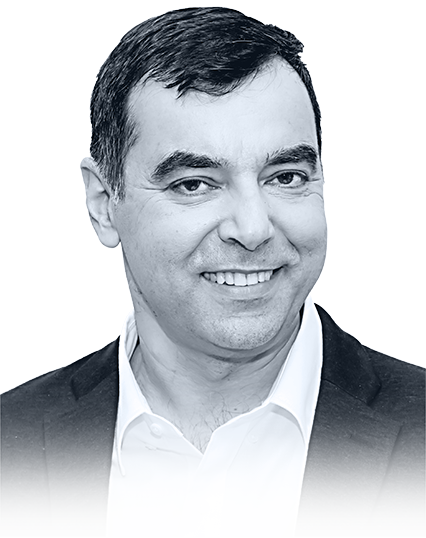
Professor Amnon Shashua

Professor Amnon Shashua is a President & CEO of Mobileye and a Senior Vice President at Intel Corporation. Among his achievements are the Dan David prize of $1 million in the category of artificial intelligence awarded in 2020; co-founding of Mobileye that claimed in 2014 the title for largest Israeli IPO ever, and in 2017 became an Intel company in the largest Israeli acquisition deal ever, for a total of $15.3B.
Professor Shashua holds the Sachs Chair in Computer Science at the Hebrew University of Jerusalem; his field of expertise is computer vision and machine learning. Shashua has published over 120 papers in the field of machine learning and computational vision and holds over 45 patents. In addition to Mobileye, in 2010, he co-founded OrCam Technologies, a pioneer in developing personal, AI-driven platforms to provide increased independence for people who are blind, visually- or hearing-impaired, and others with disabilities. The company's flagship OrCam MyEye assistive technology device was named as a TIME Best Invention of 2019. Shashua's latest company is also in the field of AI, AI21 Labs, which helps AI systems process language as a human mind would.
In 2019, Shashua was recognized as the Electronic Imaging (EI) Scientist of the Year by the Society for Imaging Science and Technology (IS&T) for his pivotal contributions to computer vision and machine learning, and for advancing autonomous driving and wearable assistive devices for the blind and visually impaired. Shashua and his Mobileye team were also finalists in the European Inventor Awards of 2019, awarded by the European Patent Office, for their advanced driver assistance technology which is making roads safer worldwide. In 2020, Shashua was awarded the Dan David Prize (Future Category) for his ground-breaking work in artificial intelligence.
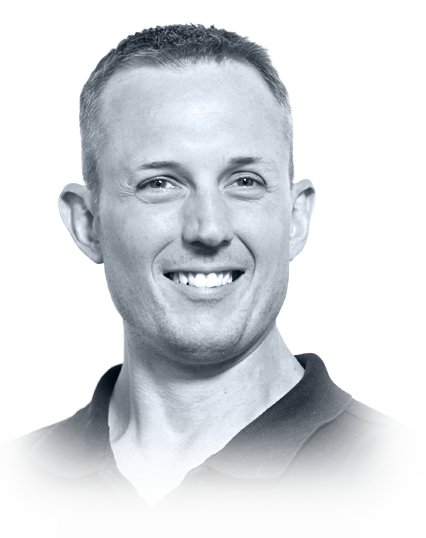
Greg Stilson

Greg Stilson joined The American Printing House for the Blind (APH) in January of 2020 but has been building technology solutions for those who are blind or low vision for the past 15 years. While at HumanWare, a leading assistive technology manufacturer, Greg lead the development of such products as the BrailleNote Touch braille tablet, Trekker Breeze talking GPS device, Brailliant braille displays, and VictorReader accessible audio book devices, among others. He spent two years with a startup company Aira, developing the Aira app and smart glasses platform, to create on-demand visual information. This year he joined APH to further develop access solutions for students in the classroom or virtually learning. When not working, Greg lives in Madison WI with his wife and two children. He is a huge sports fan, and loves wine making and home brewing.
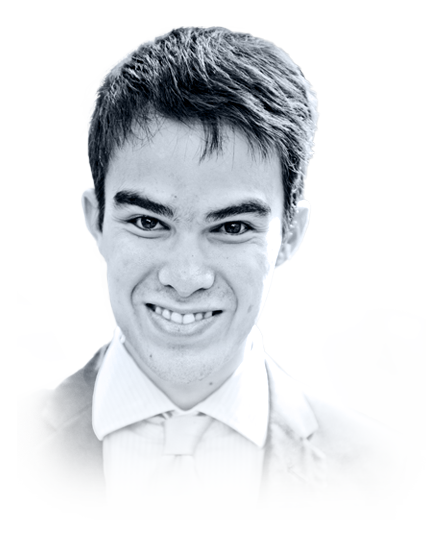
James Teh

James Teh is the Technical Lead for Firefox accessibility at Mozilla. As well as working to ensure Firefox is delightfully accessible, he plays a key part in driving accessibility strategy across Mozilla. Totally blind since birth, he has a particular passion for improving accessibility for the blind. James is a founding director of NV Access, the charity which develops the NVDA screen reader, and for the 10 years prior to his work at Mozilla, he was the co-lead developer of NVDA.

Anne Toth

Anne Toth is a Director on the Alexa Trust team at Amazon, focusing on accessibility, privacy and deepening customer trust in Alexa-enabled devices.
Prior to joining Amazon, Toth was the Head of Technology Policy & Partnerships at the World Economic Forum as well as a member of the founding leadership team at the Centre for the Fourth Industrial Revolution. Earlier in her career, Toth worked at Slack, Google and Yahoo! in various roles related to people, privacy and policy. While at Yahoo! for more than a decade, Toth served as Chief Trust Officer and championed the effort to prioritize work on accessibility for Yahoo!’s products and partnerships, leading to the staffing and creation of Yahoo!’s Accessibility Lab.
Toth is currently a Board Member for the Cloudera Foundation. She previously served as a Board Member for the Future of Privacy Forum, an Advisory Council Member for the Center for Democracy & Technology, as well as the Vice Chair of the Board of Directors for Save the Bay, an organization dedicated to preserving and restoring San Francisco’s Bay.
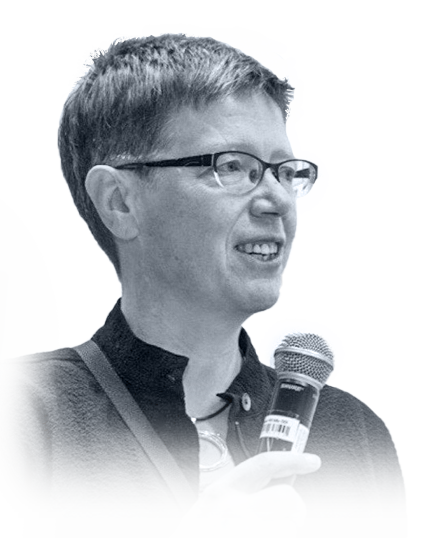
Jutta Treviranus

Jutta Treviranus is the Director of the Inclusive Design Research Centre (IDRC) and professor in the faculty of Design at OCAD University in Toronto. Jutta established the IDRC in 1993 as the nexus of a growing global community that proactively works to ensure that our digitally transformed and globally connected society is designed inclusively. She also heads the Inclusive Design Institute, a multi-university regional centre of expertise. Jutta founded an innovative graduate program in inclusive design at OCAD University. She leads international multi-partner research networks that have created broadly implemented innovations that support digital equity. She has played a leading role in developing accessibility legislation, standards and specifications internationally (including W3C WAI ATAG, IMS AccessForAll, ISO 24751, and AODA Information and Communication). She serves on many advisory bodies globally to provide expertise in data science, smart cities and inclusive infrastructure (e.g., Waterfront Toronto, London Olympics, NYC Libraries, World Economic Forum etc.). Jutta’s work has been attributed as the impetus for corporate adoption of more inclusive practices in large enterprise companies such as Microsoft and Adobe.
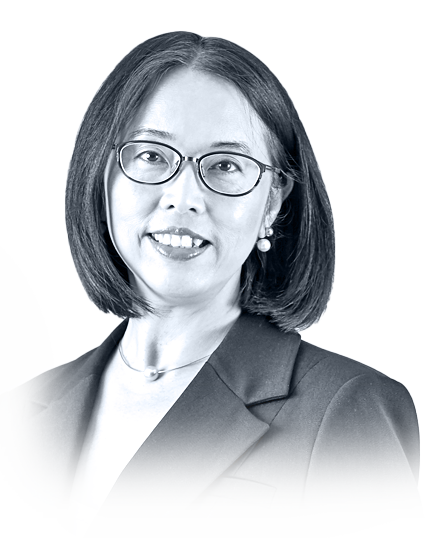
Ashley Tuan

Ashley Tuan is an ophthalmic medical device innovator and developer, who has translated basic science research into first-in-class products that benefit millions of users. Ashley started her career in the ophthalmic industry at Genentech where she contributed to the development of a new macular degeneration drug, Lucentis, followed by R&D efforts at Visx (acquired by Johnson & Johnson) where she worked on the first hyperopic presbyopia refractive surgery. She also led multi-national clinical trials for PowerVision’s (acquired by Alcon) accommodative intra-ocular lens, the development of the first myopia-control soft contact lens, MiSight ®, at CooperVision, and has developed IP and technology for two other contact lens products that are in the market. Having practiced optometry for over 25 years, Ashley has been the voice of the patients and practitioners in ophthalmic companies. She has held VP-level management roles in Clinical Affairs, Medical Affairs, Regulatory and Quality. Ashley studied at The Ohio State University, where she received an M.S. in Physiological Optics / Doctor of Optometry. She also has a Ph.D. in Vision Science from UC Berkeley, Ph.D.
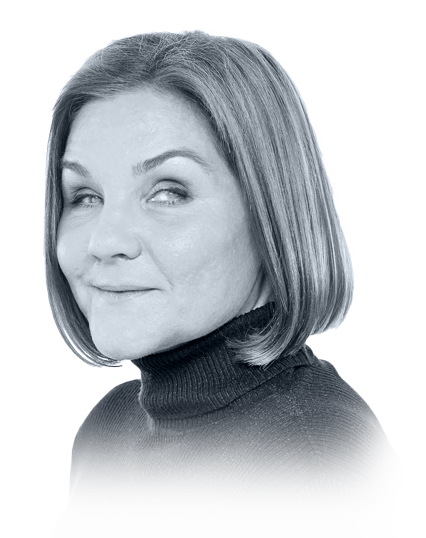
Léonie Watson

Léonie Watson is Director of TetraLogical; a member of the W3C Advisory Board; co-Chair of the W3C Web Applications Working Group; and until recently was a member of the Accelerated Mobile Pages (AMP) Advisory Committee. Léonie is co-organiser of the Inclusive Design 24 (#id24) conference; co-author of Inclusive Design Principles; and mentor to young people interested in the fields of accessibility and inclusive design. She is also a Microsoft Most Valued Professional (MVP). Léonie is often found at conferences, talking about web standards, accessibility mechanics, and pushing the boundaries of inclusive design (with existing technologies like SVG, HTML, ARIA, and JavaScript, as well as new technologies like AI and WebVR). She has also written about some of these things for Smashing magazine, SitePoint.com, and Net magazine, as well as on her own site tink.uk.
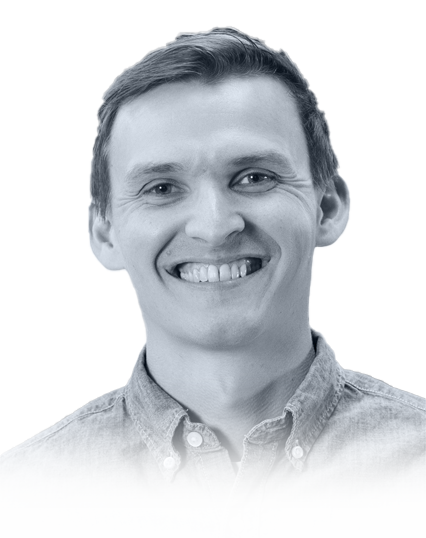
Clem Wright

Clem Wright is a Product Manager at Waymo, a self-driving technology company with a mission to make it safe and easy for people and things to get where they're going. In his role, Clem looks after Waymo's user experience and accessibility efforts. His focus is on ensuring all Waymo riders, including those with disabilities, can enjoy safe, comfortable, and convenient rides in our fully driverless service. He's been with the company for 2.5 years. Prior to Waymo, Clem spent 8 years at Google, working across Android and Chrome products. Clem holds a B.A. from Harvard University.
